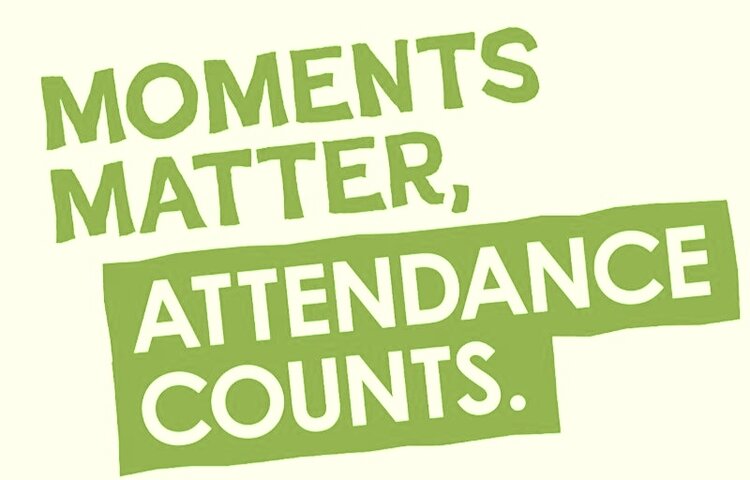History
Welcome to History
KS3 History
Year 7
Autumn 1: The Battle of Hastings & Norman Conquest
Students are introduced to medieval Britain by gaining an insight into Saxon life. The claimants to the throne are introduced and students assess who they think should be king. The events of the Battle of Hastings are then explored including why William won and Harold lost.
Autumn 2: Who was powerful in Medieval England?
Students analyse Williams’s problems and his solutions by exploring the Feudal system, the Domesday Book and a study of Castles. They will explore the power of the Catholic Church, including the murder of Thomas Becket, they then study the purpose of the Magna Carta and assess whether it is still relevant today.
Spring 1: Was the Black Death a blessing in disguise?
Students will find out what people believed caused that Black Death, and how they tried to treat and prevent it. They will study the consequences of the disease and make judgements about the impact on society and the economy, and how this eventually led to the Peasant’s Revolt.
Spring 2: Was Elizabethan England a ‘Golden Age’?
Students are introduced to the religious changes that occurred in the sixteenth century and the consequences of the Reformation and the dissolution of monasteries, such as Christchurch Priory, alongside the changes made by Henry VIII, Edward VI and Mary I. This is followed by a depth study of the problems around religion, poverty and threats from abroad that Elizabeth I faced when she became queen, and an evaluation of how successfully she solved these problems.
Summer 1: Why was there a Civil War?
Students will explore the causes of the English Civil War and the aims of the two sides involved. They will study some of the main battles, including tactics, weapons, and outcomes. They will look at the causes and consequences of the execution of Charles I, the Interregnum, and the restoration of the monarchy. Students will also have the opportunity to complete an independent project about witchcraft.
Summer 2: Local Study of Holdenhurst
The original Saxon church wall still survives, the village is often described as the ‘Mother of Bournemouth’. Students wills study the importance of the historic environment at Holdenhurst (for example, the buildings, space, ecosystems, local stories). They will then produce a documentary which will explain the importance of Holdenhurst to Bournemouth.
Year 8
Autumn 1: From slavery to Civil Rights: Did things change for the better?
Topics covered will include the concept of slavery, how slaves were treated, why the demand for them existed, and the role of the abolitionist movement. Students then study segregation, the KKK & key individuals & groups such as Martin Luther King, Rosa Parks, Malcolm X, and the Black Panthers & NAACP. Students will employ empathy skills to formulate their own opinions on the inequality and injustice of slavery to consider how much progress has been made and consider modern implications and future progress with direct reference to the Windrush generation and the BLM movement.
Autumn 2: Was the British Empire all bad?
Students explore the origins of the British Empire and the reasons why it was expanded during Victorians times. They will complete a depth study of the colonization of India and use sources and interpretations to consider whether the empire was all bad. This will then lead to a study of the life and work of Gandhi, and the fight for India’s independence.
Spring 1 & 2: How did the Industrial Revolution change Britain?
Students will explore how life in Britain changed between 1700 and 1900 following the revolution in industry and agriculture. They study the impact of the creation of factories on the economy and society, with a particular focus on the role of children and living conditions, and this will be complimented by reading parts of Charles Dickens’ Oliver Twist. Students will complete an age appropriate, independent enquiry into the hunt for Jack the Ripper, making links to the problems created by pollution, dreadful living conditions, and the lack of policing.
Summer 1 & 2: How did one bullet lead to the death of millions?
An enquiry into the Great War, and the cause and consequence of World War I. Students will look at the long- and short-term causes of WWI, trench warfare, war poetry and the effects the war had on those involved. Students will complete group work tasks exploring recruitment materials and will research and present findings about one of the battles that took place during the war. Students will also complete a depth assessment based on the interpretations surrounding General Haig and the Battle of the Somme, and make a judgement about whether it was ‘Lions led by Donkeys?’ This will be complimented by reading the novel ‘War Horse’ or ‘Private Peaceful’.
Students will also study the Suffrage movement and evaluate how the role of women changed during WWI.
Year 9
Autumn 1: Was WWII inevitable?
Students will study the consequences of WWI, and particularly the impact of the Treaty of Versailles on Germany. They will explore the causes and consequences of events such as the Great Depression and analyse how these helped Hitler and the Nazis to come to power. Students will look at the rise of Hitler in Germany and how his increase in power led to an increase in anti-Semitism. They will also study Hitler’s aim to create a Third Reich and how this led to breaking the terms of the Treaty of Versailles and will evaluate Britain’s response and the policy of appeasement.
Autumn 2 & Spring 1: The Holocaust
Students will explore the lives of Jews under Nazi rule, including the impact of Kristallnacht, Nuremburg Laws, the creation of ghettos, persecution, and conditions in Concentration Camps and the Final Solution. The historical debate surrounding the intent of Hitler to exterminate 6m people will be explored, as will the reaction of the world.
Students will develop empathy skills by exploring personal accounts of the Holocaust by reading the Diary of Anne Frank and watching excepts from Schindler’s List. The unit will conclude by exploring the legacy of the Holocaust and Holocaust memorial, and whether lessons have been learned with reference to genocide in Rwanda and Bosnia.
Spring 2: What was it like to live through WWII?
Students will complete an independent enquiry into aspect of the Home Front, including the Blitz, evacuation, ARP, rationing, and the changing roles of women. They will also find out how Bournemouth was affected by WWII.
This will be complimented by reading the novel, ‘Goodnight, Mr Tom’. Students will then study the causes and consequences some of the key events of WWII, including the evacuation of Dunkirk, the attack on Pearl Harbour, the Battle of Stalingrad, and D-Day.
Summer 1: What was the Cold War?
Students will study the causes and consequences of the Cold War, including the division of Berlin after WWII and the construction of the Berlin Wall, the creation of the Eastern Block and the concept of the Iron Curtain, and the ‘Space Race’ and the development of nuclear weapons. This will culminate in a study of the fall of communism, and the significance of the Prague Spring, perestroika, and the fall of the Berlin War.
Summer 2: Who killed JFK?
Students will continue to develop their independent research skills by conducting an enquiry into the assassination of John F Kennedy using a range of historic and contemporary sources and interpretations to reach an informed conclusion.
How has life changed? Students will conduct a second independent breadth study into life in the C20th. Starting with the 1940s, they will find out how work, music, entertainment, food, life for children, and homes have changed over time, and make comparisons with their own lives.
KS4: AQA GCSE History (8145)
Year 10
Autumn 1- Spring 1 Britain: Health & the People, c.1,000 up to present day.
This thematic study will begin with the medicine of the Greeks, the Romans and their varying methods and treatments. Students then explore the medicine of the Middle Ages including aspects of the Black Death before the great leaps seen under the Renaissance. The work of Vesalius, Paré, William Harvey, John Hunter, Edward Jenner, Robert Koch, Louis Pasteur, and Alexander Fleming will all be studied in detail to assess their impact on the development of medicine.
The improvements and changes seen in surgery and treatments including X-ray, keyhole surgery, and transplants will also be covered. The establishment of the NHS is where the study concludes, assessing its impact on British health.
Spring 2 – Summer 2: Elizabethan England, c1586 – 1603
This period study will explore all aspects of England under Elizabeth I. Some background knowledge on the early part of her reign will be covered before looking at the role the Royal Court played in Elizabethan England. Students then look at trouble in England caused by religion and the issue of Mary, Queen of Scots; before looking at trouble overseas with the threat posed by the Spanish Armada. Students will consider whether Elizabethan England was a ‘Golden Age’ by exploring advances in exploration and colonization by individuals such as Drake and Raleigh, changes in fashion and entertainment, and attitudes towards poverty. This unit also includes a mandatory historic environment study that is decided on by AQA each year; past studies have included Hardwick Hall, the Spanish Armada, and the Globe Theatre.
Year 11
Autumn 1 – Spring 2: Democracy & Dictatorship, Germany 1898- 1945 + Conflict & Tension, 1918 – 1939: The Interwar Years
These units cover the same time period- one a period study of Germany, the other, a wider world depth study- and are taught together because of the overlap in content and to support students’ contextual understanding of the time. Students explore the links between Kaiser’s aims for Germany and WWI, and the consequences of defeat for the people of Germany and the Allies, in particular the Treaty of Versailles. We evaluate the role of Stresemann in bringing about Germany’s recovery, followed quickly by the impact of the Wall Street Crash and the Great Depression. Students then study how Hitler and the Nazi Party take advantage of German’s social and economic problems to take power, and how life changes for different groups of people under Nazi rule.
Alongside this, we explore the creation of the League of Nations and its aims, in the aftermath of WWI, and evaluate its success in dealing with conflicts in Europe and the wider world during the interwar years. We explore the impact of the Great Depression on the work of the League, and how this contributes to its eventual collapse following the Manchurian Crisis and the Abyssinia Crisis. Students then study Hitler’s aims and evaluate the British policy of appeasement as the terms of the Treaty of Versailles are broken. They will also explore the consequences of the decline in the relationship between Britain and Russia, and how this contributes to the Nazi-Soviet Pact and the invasion of Poland and the outbreak of WWII.
History Curriculum Journey

